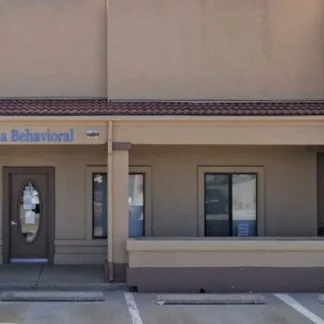Community Medical Services
Community Medical Services is a drug and alcohol rehab in Glendale, Arizona. The...
Arizona Behavioral Counseling and Education is a drug and alcohol rehab and counseling center in Glendale, Arizona. They provide outpatient addiction treatment, DUI education, and mental health counseling services.
Arizona Behavioral Counseling and Education provides a wide array of therapeutic services using evidence-based approaches. Outpatient substance abuse treatment is offered for individuals with substance-use-related citations. There are four levels of treatment: 36-hour, 54-hour, 72-hour, and 90-hour. Treatment attendance depends on the severity of your substance use disorder. Sessions consist of cognitive behavioral group counseling, matrix early recovery skills program, relapse prevention, and urine analysis. Other programs offered include an 18-hour substance use education program, domestic violence offender treatment, screening assessment, and positive alternative behavioral treatments.
This facility accepts Care1st and Arizona Complete Health. Check your out-of-network benefits and verify coverage directly with your provider.
Contact us for more information: (602) 788-1116

Connect with Arizona Behavioral Counseling and Education by calling their admissions team directly.
(602) 788-1116 Website Get DirectionsCognitive Behavioral Therapy (CBT) is a therapy modality that focuses on the relationship between one's thoughts, feelings, and behaviors. It is used to establish and allow for healthy responses to thoughts and feelings (instead of unhealthy responses, like using drugs or alcohol). CBT has been proven effective for recovering addicts of all kinds, and is used to strengthen a patient's own self-awareness and ability to self-regulate. CBT allows individuals to monitor their own emotional state, become more adept at communicating with others, and manage stress without needing to engage in substance abuse.
In individual therapy, a patient meets one-on-one with a trained psychologist or counselor. Therapy is a pivotal part of effective substance abuse treatment, as it often covers root causes of addiction, including challenges faced by the patient in their social, family, and work/school life.
Motivational Interviewing (MI) is a clinical approach to helping people with substance abuse issues and other conditions shift behavior in positive ways. It is more goal-oriented than traditional psychotherapy, as MI counselors directly attempt to get clients to consider making behavioral change (rather than wait for them to come to conclusions themselves). Its primary purpose is to resolve ambivalence and help clients become able to make healthy choices freely.
In individual therapy, a patient meets one-on-one with a trained psychologist or counselor. Therapy is a pivotal part of effective substance abuse treatment, as it often covers root causes of addiction, including challenges faced by the patient in their social, family, and work/school life.
Motivational Interviewing (MI) is a clinical approach to helping people with substance abuse issues and other conditions shift behavior in positive ways. It is more goal-oriented than traditional psychotherapy, as MI counselors directly attempt to get clients to consider making behavioral change (rather than wait for them to come to conclusions themselves). Its primary purpose is to resolve ambivalence and help clients become able to make healthy choices freely.
Motivational Interviewing (MI) is a clinical approach to helping people with substance abuse issues and other conditions shift behavior in positive ways. It is more goal-oriented than traditional psychotherapy, as MI counselors directly attempt to get clients to consider making behavioral change (rather than wait for them to come to conclusions themselves). Its primary purpose is to resolve ambivalence and help clients become able to make healthy choices freely.
Community Medical Services is a drug and alcohol rehab in Glendale, Arizona. The...
Jewish Family & Children's Services (JFCS) is a substance abuse and mental h...
Enchantment Workshops, located in Phoenix, Arizona, provides alcohol and drug re...
Southwest Behavioral Health - Erickson Outpatient is a behavioral health care an...